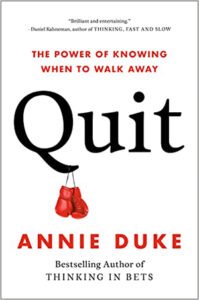|
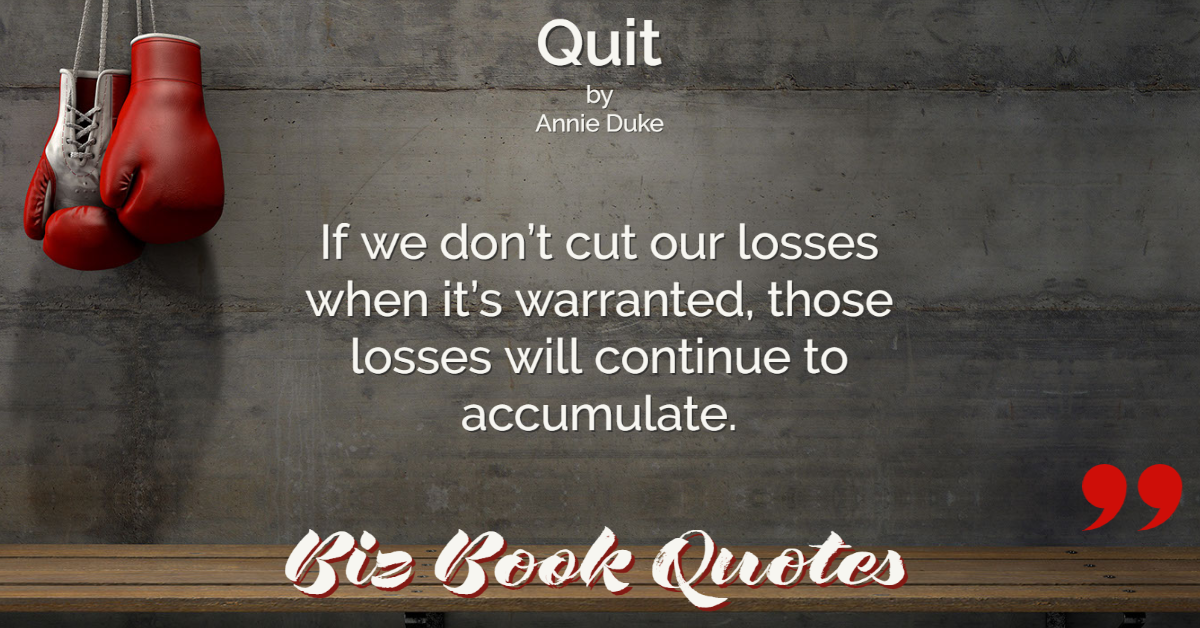
|
Quit:
If we don’t cut our losses when it’s warranted, those losses will continue to accumulate.
|
31 |
|
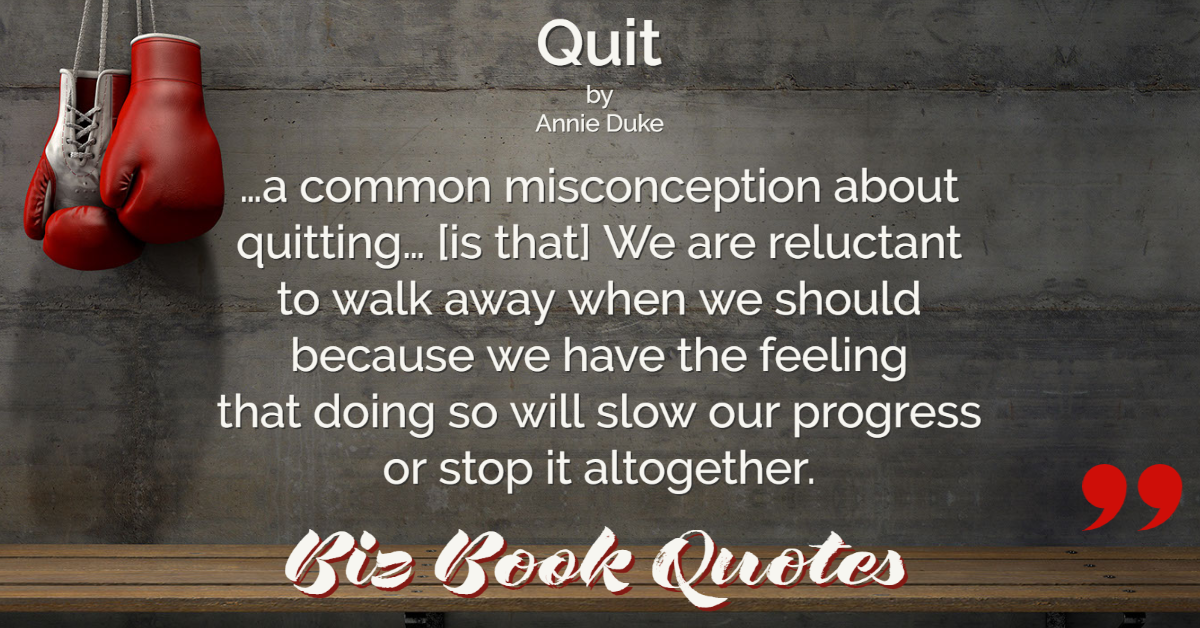
|
Quit:
…a common misconception about quitting… [is that] We are reluctant to walk away when we should because we have the feeling that doing so will slow our progress or stop it altogether.
|
32 |
|
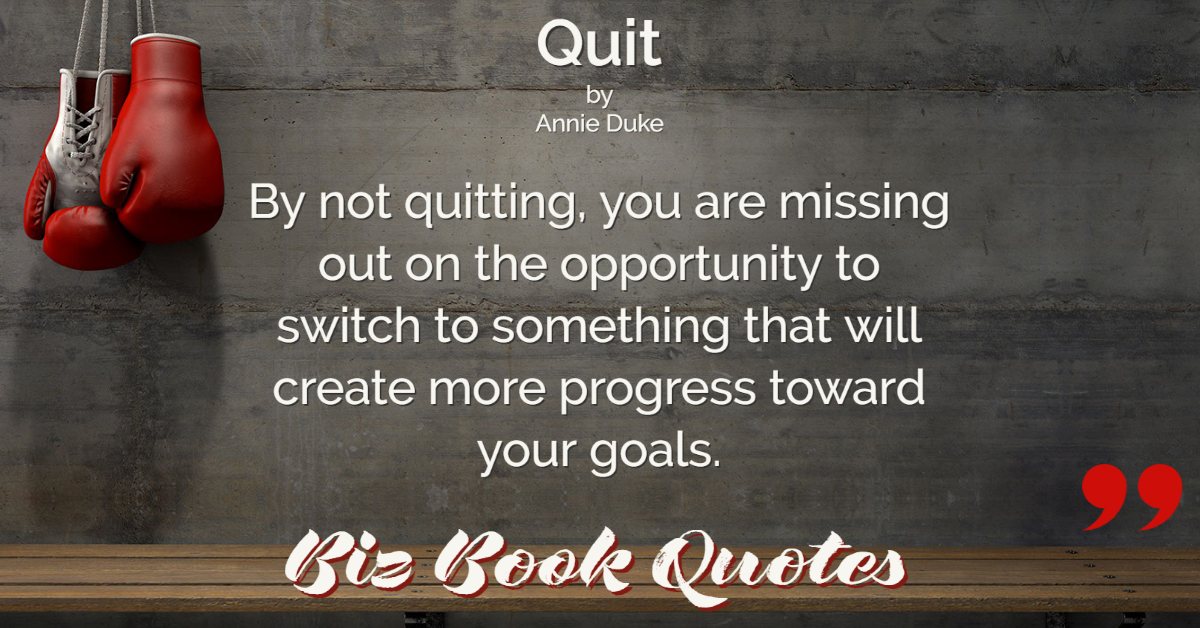
|
Quit:
By not quitting, you are missing out on the opportunity to switch to something that will create more progress toward your goals.
|
32 |
|
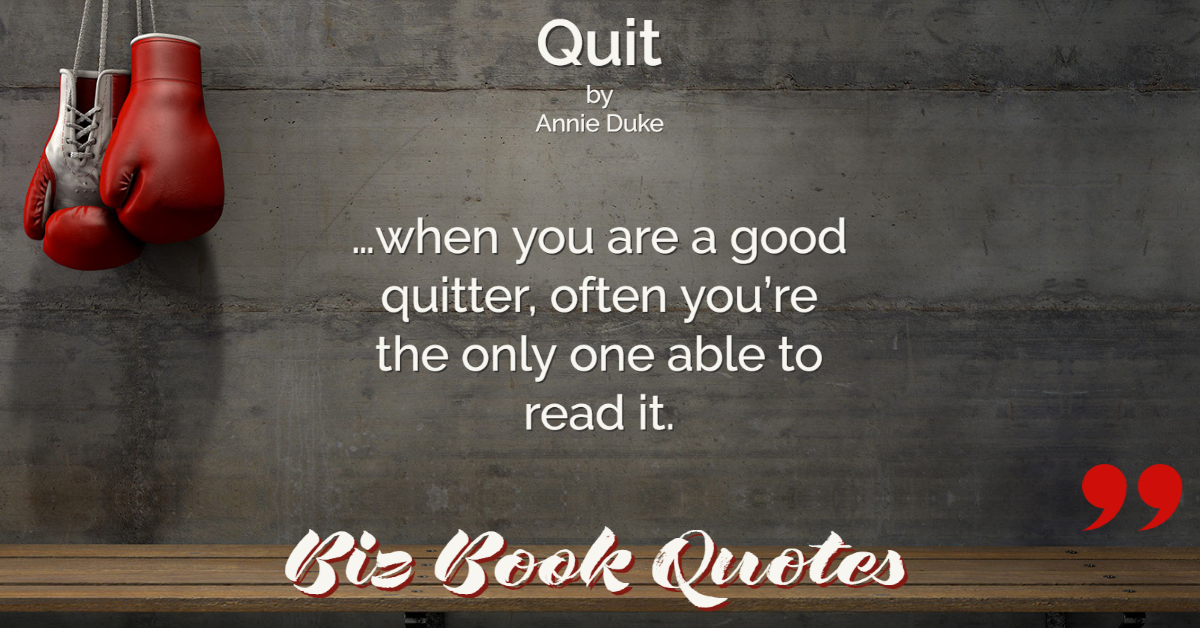
|
Quit:
…when you are a good quitter, often you’re the only one able to read it.
|
35 |
|

|
Quit:
…expected value is not just about money. It can be measured in health, well-being, happiness, time, self-fulfillment, satisfaction in relationships, or anything else that affects you.
|
39 |
|
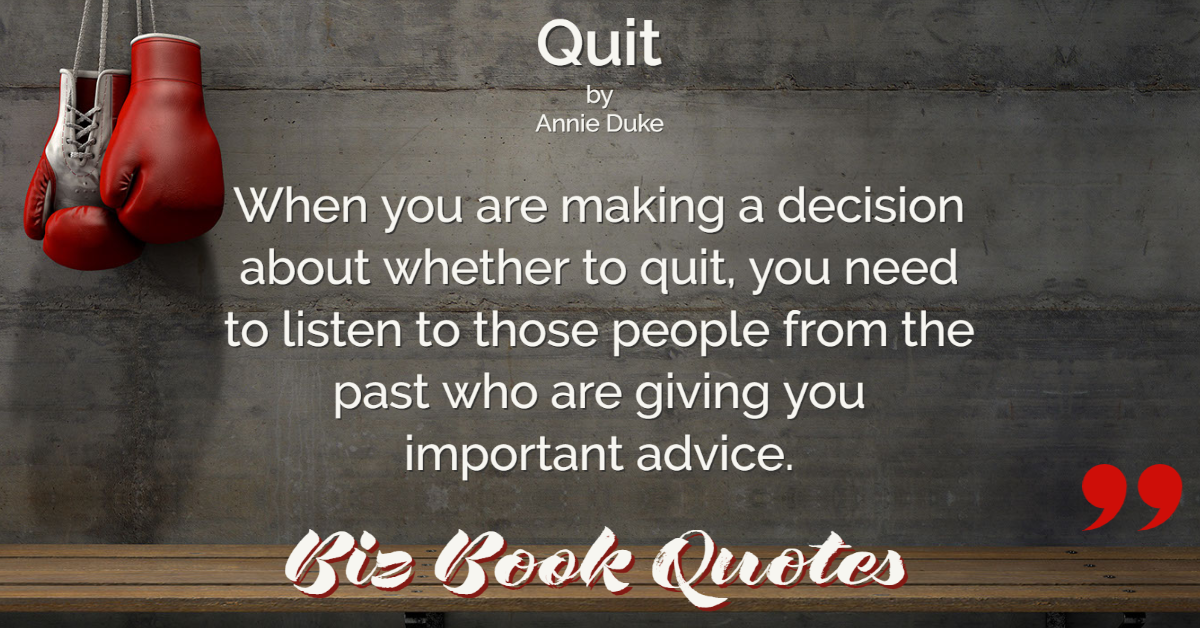
|
Quit:
When you are making a decision about whether to quit, you need to listen to those people from the past who are giving you important advice.
|
40 |
|

|
Quit:
If you feel like you’ve got a close call between quitting and persevering, it’s likely that quitting is the better choice.
|
42 |
|
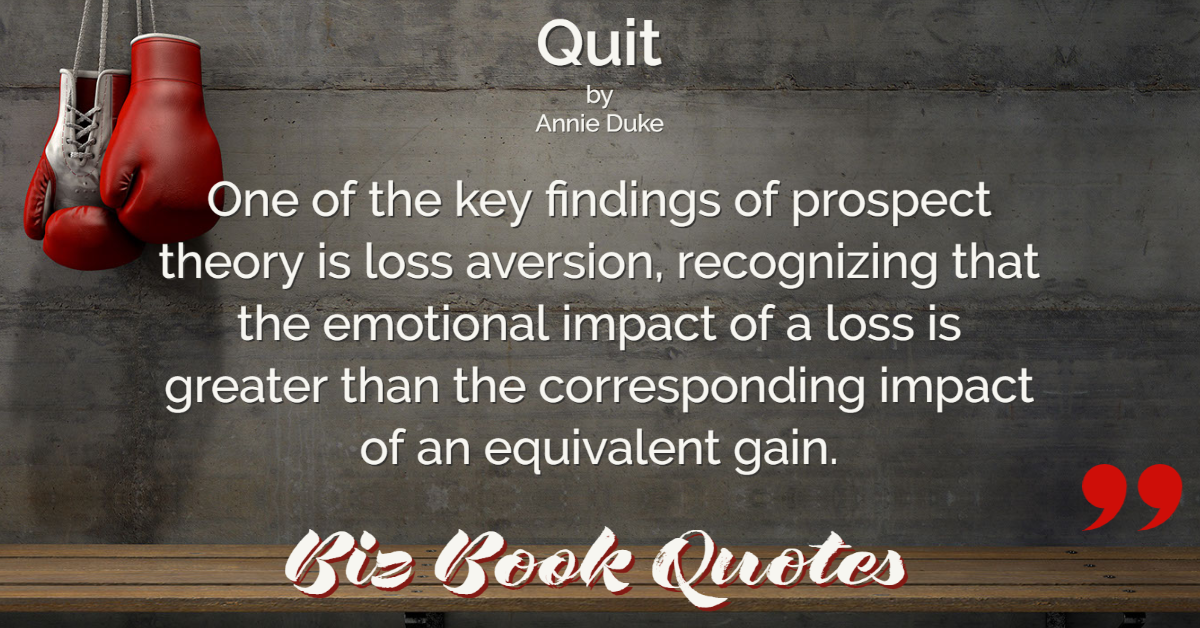
|
Quit:
One of the key findings of prospect theory is loss aversion, recognizing that the emotional impact of a loss is greater than the corresponding impact of an equivalent gain.
|
52 |
|
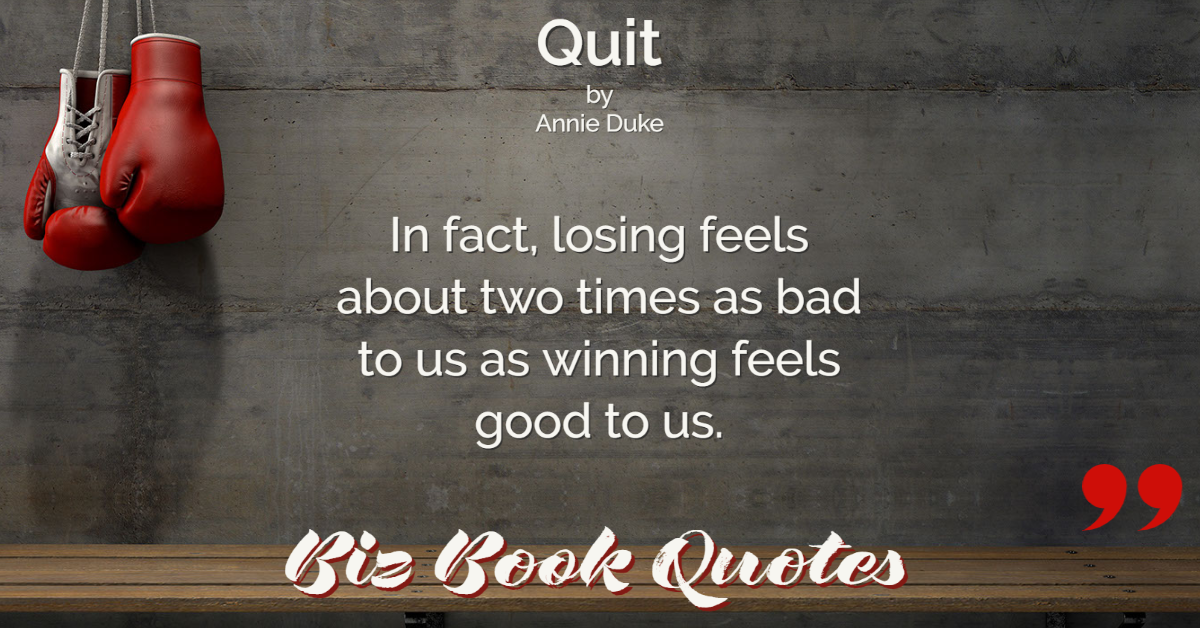
|
Quit:
In fact, losing feels about two times as bad to us as winning feels good to us.
|
52 |
|
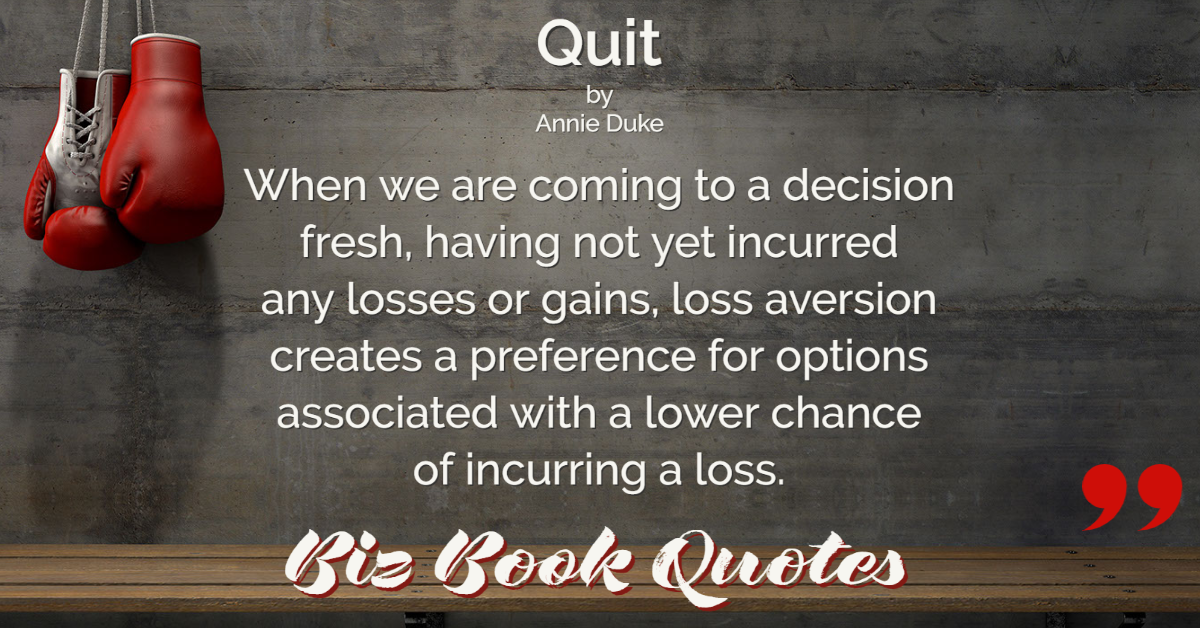
|
Quit:
When we are coming to a decision fresh, having not yet incurred any losses or gains, loss aversion creates a preference for options associated with a lower chance of incurring a loss.
|
53 |
